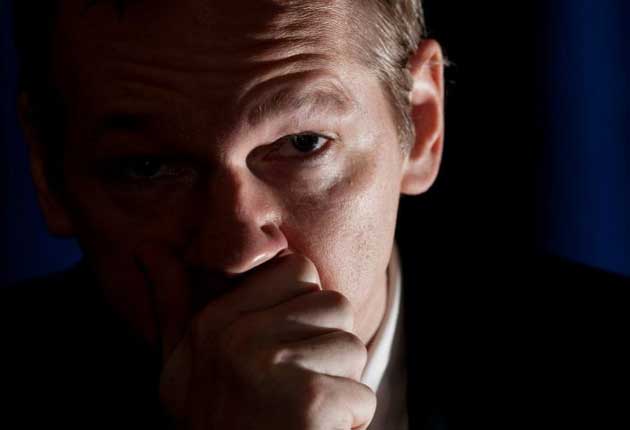Arrest warrant on Assange to be served today

The journalist at the centre of the international storm surrounding the WikiLeaks disclosures was served with an arrest warrant yesterday evening over sex offence allegations in Sweden.
Lawyers for Julian Assange were contacted by Scotland Yard detectives last night over the first stage of extradition proceedings that could lead the WikiLeaks founder being handed over to the Swedish authorities. Jennifer Robinson, a solicitor with Finers Stephens Innocent, confirmed last night that a warrant had been received and that her firm was "negotiating a meeting with police".
"We have received communication from the police that a European Arrest Warrant has been communicated and validated here by the UK authorities," Ms Robinson told the Australian news channel ABC News.
"We were contacted after close of business this afternoon and are now making arrangements with police for a meeting. I'm not in a position to be able to confirm when that meeting will take place precisely, but I can tell you that we are in negotiations at present."
Another lawyer representing Mr Assange, Mark Stephens, said: "Their request is to interview Julian Assange. He's not been charged with anything."
Reports emerged last night that he was expected in court as early as today to negotiate bail of between £100,000 and £200,000.
The warrant was processed by the Serious Organised Crime Agency and was sent by the Metropolitan Police. Mr Assange, believed to be residing in South-east England, is a suspect in a case in which two women claim they were sexually attacked by him when he visited Sweden in August this year.
Earlier Mr Stephens had said that Mr Assange would "certainly" oppose deportation on the basis that it could lead to him in turn being handed over to the US.
If Mr Assange is arrested, it is expected he would appear before an extradition hearing at Westminster Magistrates' Court for a ruling to be made on whether or not he should be sent to Sweden.
Yesterday, US prosecutors were weighing their own legal options in the wake of the latest WikiLeaks disclosures, which America said had put Western security at risk.
The US Attorney General Eric Holder said the Obama administration was considering using laws, in addition to the 1917 Espionage Act, to prosecute him over the release of sensitive information by WikiLeaks.
"That is certainly something that might play a role, but there are other statutes, other tools at our disposal," Mr Holder told reporters.
"The lives of people who work for the American people have been put at risk. The American people themselves have been put at risk by these actions that I believe are arrogant, misguided and ultimately not helpful in any way. We are doing everything that we can." He also disclosed that he had authorised "significant" actions against WikiLeaks.
WikiLeaks has released hundreds of internal US diplomatic messages, some of which contained classified information that has embarrassed the Obama administration and foreign governments.
Although Mr Assange is an Australian citizen, legal experts said last night that it would still be possible to put him on trial in America. In some states it is easier to prosecute people for unauthorised disclosure of classified information. Mr Assange and WikiLeaks, however, could counter that they are akin to a news organisation, protected by the First Amendment of the US Constitution.
But more pressing for Mr Assange is the case being prepared by Swedish prosecutors, who issued a warrant for Assange's arrest last month, but could not enforce it because of a technical blunder in the completion of the document. His details were also added to Interpol's "most wanted" website, alerting police worldwide.
Burmese big for United
* When the Burmese people were in desperate need of aid after Hurricane Nargis, the leader of the country's junta had other ideas on how best to spend $1bn: on a takeover bid for Manchester United. Diplomatic cables to appear yesterday say that Than Shwe concluded such a move would "look bad". A message from the US embassy in Rangoon also reveals that Than Shwe forced businesses to fund a new football league. One of the owners explained: "When the senior general asks someone to do something, you do it with no complaints."
Bookmark popover
Removed from bookmarks